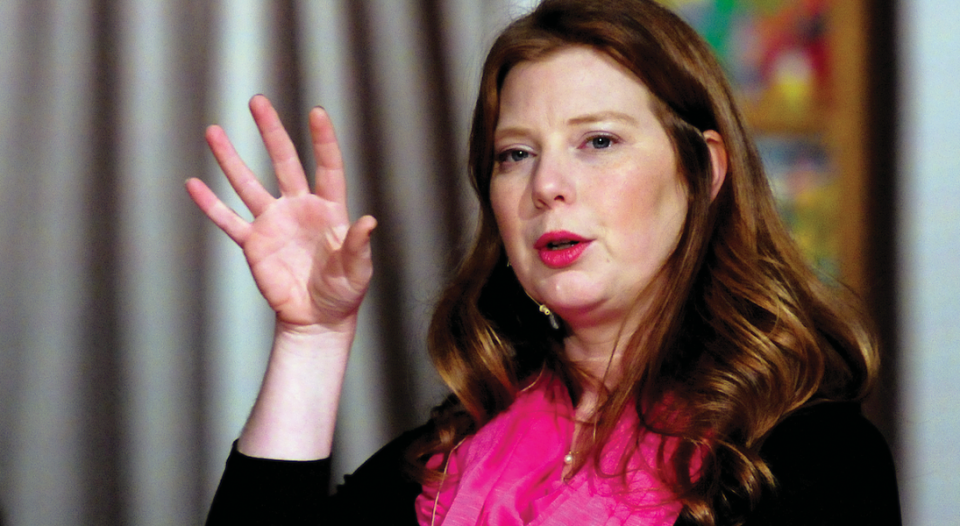It was the last session of a retreat with high school youth. We sat still together in the chapel, which was nestled in the beautiful landscape that many have come to love at Holden Village, the Lutheran retreat center in Washington. We had just spent two days together discussing relationships.
During my final talk as their speaker, I looked up at them and said: “Every person in this room is going to get hurt. Every person in this room is going to hurt another person. The key is to learn how to work through those feelings and how to rectify them. It’s up to you whether you let them take over your world. Everyone in here also deserves to be loved. And love, as we have learned, is not a romantic comedy, but something we work hard at to understand, to nourish and make last.”
I felt the room exhale.
It’s something I often see after leading workshops or discussions around sexuality. It feels as if people release years of inhalations they have bottled inside as a protective shield to ward off being hurt or misunderstood.
By ignoring sexuality or not bringing discussions around it into our churches and homes in a holistic, positive matter, we are ministering to only half a person.
We all share the fundamental need to be seen, heard and known. This is especially true when it comes to our sexuality because it’s so much of who we are and what we’re made of.
When I begin workshops, we read together the definition of sexuality provided by the World Health Organization: “Sexuality is a central aspect of being human throughout life. … [It] is influenced by the interaction of biological, psychological, social, economic, political, cultural, ethical, legal, historical, religious and spiritual factors.”
Sexuality encompasses everything about us, and session participants begin to understand how their lives have been impacted by that. Our spirituality and sexuality are intimately woven together. By ignoring sexuality or not bringing discussions around it into our churches and homes in a holistic, positive matter, we are ministering to only half a person.
Where do we begin? As I say in my classes, “Start simple, build from there.”
Ask yourself: How is my community or family addressing each one of the components of sexuality—especially when considering teaching youth—in a healthy and positive way?
Little questions, big results
When we think about sexuality in our church and in our families, the main factor to consider is connection. In the Bible, Jesus is all about building connection and intimacy. When we look at the topic from this lens, it tends not to be as scary.
The first thing we need to do to talk openly and create brave, nourishing spaces for these conversations is to recognize that we all hold hurt, shame and guilt around our sexuality. This is often why approaching the topic seems daunting. We also feel nervous because our understanding of how our bodies work and the interplay with our emotions are hard to work out.
In the Bible, Jesus is all about building connection and intimacy.
As Lutherans, we need to allow grace to hold us in those times. We will stumble, we will make mistakes and we will feel vulnerable and exposed, leaving us feeling a bit fragile. So we need to have ways for our youth to learn to care for themselves integrated into these conversations—and we need safeguards.
In the beginning, it’s about building an awareness. In your church, in your family unit and as an individual, what are your triggers? When we proceed in these conversations, we should ask ourselves these questions:
- Where have I been hurt?
- Where have I hurt others?
- What are my strengths? My weaknesses?
- How am I changing?
- What do I want?
- What do I need?
- What do I want to give?
- What do I want for others?
Since sexuality is so expansive, having daily conversations on what can seem like little things turns out to create big results.
Try these questions:
- What is love?
- How do we practice consent daily?
- What makes you feel like you?
This is the “Start simple, build from there” philosophy, and it can expand from there:
- How, in your church and in your family, do you allow everyone to be seen or heard?
- Do you have gender-neutral spaces for members of your congregation?
- Do you allow children to play with what they express interest in without outside influence?
- Are we tending to the elderly among us who may not be getting the sense of touch and companionship they need?
Building a foundation by educating ourselves, tending to our wounds and acknowledging how we have hurt others is essential in having conversations around sexuality. God created us to have relationships that are intimate and life-giving, and that should be celebrated. God also created us with great imagination. Just because we may have a hard time understanding that, it shouldn’t stop us from learning about the many ways love and humanity can manifest.
Remember that God came to us through a body and in a body, so it is our job to educate ourselves on our bodies. They are intricate, delicate, fascinating, confusing, durable vessels that were created to experience deep connection that reunites us with our Creator.





